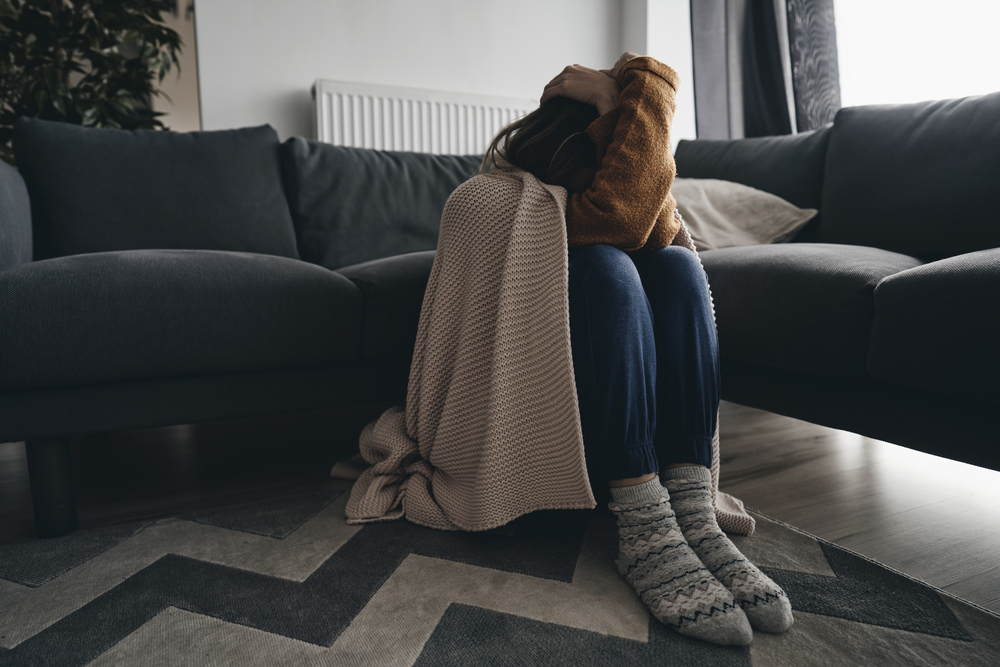Did you know that more than 50% of people will experience some form of emotional abuse in their lifetime? It is a startling figure. From traumatic childhoods to narcissistic relationships and gaslighting, there is no surfeit of abuse that triggers psychological effects. Unfortunately, some people know how to weaponize emotions to cause further harm, resulting in emotional abuse that continues on for days, months, or years. Luckily, while it may be difficult for those in an emotionally abusive relationship to recognize the signs, those on the outside can learn what to look for so that you can protect those you love.
Comparison of Emotional and Physical Abuse
|
Aspect
|
Emotional Abuse
|
Physical Abuse
|
|---|---|---|
|
Visibility of Harm
|
Often invisible; damage is psychological
|
Visible injuries, scars, or bruises
|
|
Nature of Damage
|
Mental, emotional, psychological
|
Physical, can also lead to psychological damage
|
|
Patterns
|
Continuous, can be subtle and pervasive
|
Often cyclical with phases of calm and violence
|
|
Recognition
|
Harder to identify due to lack of physical signs
|
More easily recognized due to physical evidence
|
|
Impact on Victim
|
Long-term effects on self-esteem, mental health
|
Immediate physical harm, potential for long-term health issues
|
|
Escape Difficulty
|
Isolation can make leaving harder; psychological dependency
|
Fear of physical retaliation can be a barrier to leaving
|
|
Legal Recognition
|
Less directly acknowledged by law in some jurisdictions
|
More universally acknowledged legally
|
What is Emotional Abuse?
Emotional abuse is a pattern of behavior that instills fear and controls another person. Like physical abuse, emotional abuse happens over time, sometimes building in severity. The victim may experience a distorted reality due to internalized negative impacts from the abuse.
However, unlike physical abuse, there is no bodily harm done. The majority of the damage is mental, emotional, and psychological, leading to a victim who is demoralized and depressed. He/she may also show physical signs of anxiety and stress, including a racing heart, body aches, nightmares, difficulty concentrating, and confusion.

What are the Signs of Emotional Abuse?
What are the Signs of Emotional Abuse?
Emotional abuse happens through demeaning, demoralizing, isolating, manipulating, and threatening the victim until he/she is controlled. Here are some common signs of emotional abuse:
- Monitoring an individual’s behavior, including how he/she spends their time and money
- Isolating an individual from friends and family
- Threatening an individual’s family, property, or safety
- Ridicule and teasing
- Constant criticism
- Jealousy, accusations, and paranoia
- Humiliating and shaming
- Thwarting a person’s personal and professional goals
- Instilling emotions of worthlessness
- Gaslighting
- Making love and care conditional on an individual’s choices
- Refusing to allow someone to spend time alone
| Category of Abuse | Specific Examples/Behaviors |
|---|---|
| Control/Monitoring | Monitoring spending, tracking time, controlling who they talk to, limiting access to resources (money, car, phone) |
| Isolation | Isolating from friends and family, preventing contact with support systems, creating distance between the victim and loved ones |
| Threats | Threatening harm to the victim, their family, pets, or property; threatening to take children away; threatening suicide if the victim leaves |
| Verbal Abuse | Constant criticism, name-calling, insults, put-downs, ridicule, belittling opinions and accomplishments, yelling, screaming |
| Jealousy/Paranoia | Unfounded accusations of infidelity, excessive jealousy of time spent with others, questioning every interaction with other people |
| Humiliation/Shaming | Public or private humiliation, making fun of the victim in front of others, shaming them for their appearance, beliefs, or background |
| Manipulation | Gaslighting (denying the victim’s reality or feelings), making love conditional, playing mind games, shifting blame, twisting words, using guilt trips, emotional blackmail |
| Undermining Goals | Sabotaging career or educational goals, discouraging personal growth, preventing the pursuit of hobbies or interests |
What Tactics Do Emotionally Abusive People Use?
People who are emotionally abusive will use a number of tactics to get the results they want. When considering the signs listed above, you may be able to form an idea of how it will happen. Let us provide you with some more concrete examples.
Firstly, perpetrators of emotional abuse want to gain power over someone, so they will use things like shame and humiliation to coerce and control. The victim’s weight, appearance, clothing choices, and schedule may be consistently berated in an attempt to shame them into doing what the perpetrator wants. Furthermore, victims may be called names and have baseless accusations tossed at them throughout the day to get them questioning their own sanity. This is part of another tactic emotionally abusive people use: gaslighting.
When people are gaslit, they are made to believe that their emotions are invalid or that their perception of something is false. For example, an emotionally abusive person may make his/her victims believe that friends and family dislike them in an attempt to isolate the victims from their support group.
Do Emotional Abusers Become Violent?
Emotional and physical abuse may be separate but can also occur at the same time. That said, it has been found that emotional abuse may precede physical abuse, typically when the abuser’s tactics fail to completely control the victim’s behaviors.
However, even if the abuse does not become physical, that does not mean that damage is not incurred. In fact, psychological damage can be just as terrible, if not worse, than physical abuse. Physical abuse is often cyclical in nature, with the abuse entering stages of fawning and pleasantness, which gives the abused time to heal. Emotional abuse, on the other hand, is constant. It does not stop. Furthermore, the victims of emotional abuse will often be silent about it, as they perceive their mistreatment as their fault or their failing.

How to Leave an Emotionally Abusive Relationship
How to Leave an Emotionally Abusive Relationship
If you or someone you know is in an emotionally abusive relationship, leaving is not easy, but it is possible. In abusive relationships, whether physical or emotional, there are obstacles that the victim needs to clear before getting a chance at escape. Fears of retaliation, instability, denial, isolation, and a lack of support (often fueled by the emotional abuse) may keep a person trapped within the abuse for many months or years. It may also be dangerous to leave the situation, especially if the abuser is prone to do something dangerous.
Instead, it is recommended that you call the local authorities or chat with the professionals at the National Domestic Violence Hotline, which can be reached by calling 800-799-7233. You can also speak with a lawyer who is experienced in handling domestic violence cases in New Jersey, such as those at Ziegler Law Group, LLC. Having a legal advocate on your side (or the side of your loved one) not only gives the victim support when most needed but also a voice in the court room, should a hearing be required.
Resource Box
-
National Domestic Violence Hotline:
-
Phone: 1-800-799-SAFE (7233)
-
Chat: Online Chat
-
Text: “START” to 88788
-
-
Local Support Groups or Shelters in New Jersey:
-
To find local resources, you can visit:
-
For immediate help, consider contacting:
-
New Jersey Coalition to End Domestic Violence
-
Phone: 609-584-8107
-
Website: NJCEADV
-
-
Additional resources include:
-
Jersey Battered Women’s Services (JBWS)
-
Phone: 973-267-4763
-
Services: Emergency shelter, counseling, legal advocacy
- Website: https://jbws.org/
-
-
Women Aware
-
Phone: 732-249-4900
-
Services: Domestic violence services, shelter, legal advocacy
- Website: https://womenaware.net/
-
-
-
-
-
Legal Aid – Ziegler Law Group, LLC:
-
Specialty: Domestic Violence, Family Law, Divorce
-
Phone: 973-533-1100
-
Location: New Jersey, USA
-
Website: https://zieglerlawgroupllc.com/
-
Download –
- Overcoming Domestic Violence in NJ
- The Impact of Domestic Violence on Children
- Your Guide to Safety and Legal Protection: Domestic Violence Legal Services
Contact a New Jersey Family Law or Divorce Lawyer Today
Emotional abuse is a pervasive and damaging form of domestic violence that can have long-lasting effects on a victim’s mental and emotional health. Unlike physical abuse, the harm caused by emotional abuse is often invisible, making it difficult for victims to recognize and seek help. By understanding the signs and tactics of emotional abuse, those on the outside can offer support and help victims find a path to safety.
If you or someone you know is experiencing emotional abuse, do not wait to seek help. Contact the professionals at Ziegler Law Group, LLC for compassionate and experienced legal support. Our team is dedicated to helping victims of emotional abuse regain independence and safety. Call us today at 973-533-1100 for a confidential consultation, and take the first step toward a safer, healthier future.







